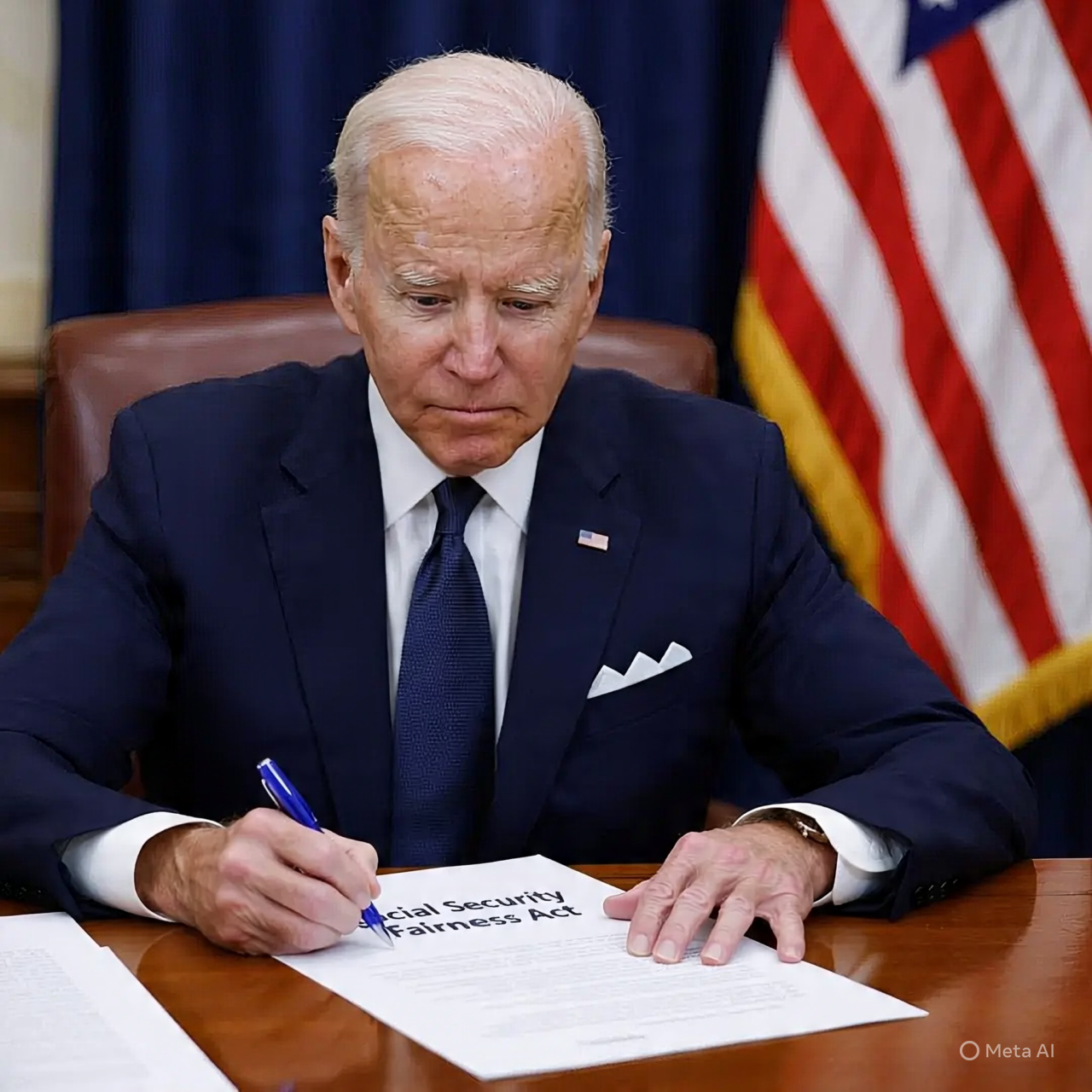Mary, a retired teacher from Ohio, checks her mailbox every month—hoping for a little more in her Social Security check. But for years, she’s been penalized by an outdated rule. After decades of teaching and paying into the system through side jobs, her benefits were slashed. Now, with the Social Security Fairness Act waiting for action in Washington, she—and millions like her—are asking:
“When will Biden sign the Social Security Fairness Act?”
For public servants like Mary, this isn’t just politics—it’s survival. The bill would repeal two unfair provisions that have drained retirement security for teachers, firefighters, police officers, and other government workers. But despite growing pressure, the White House hasn’t committed to pushing it forward.
So why the delay? And will relief finally come? Let’s break it down.
1. What Is the Social Security Fairness Act?
Imagine working 30 years as a teacher, paying into Social Security through a second job, only to see your hard-earned benefits cut by hundreds per month. That’s the reality for millions due to two controversial rules:
- Windfall Elimination Provision (WEP) – Reduces benefits for workers who also have a pension (like teachers and firefighters).
- Government Pension Offset (GPO) – Cuts spousal or survivor benefits for public employees.
The Social Security Fairness Act would wipe out both penalties, finally ending what many call a “retirement tax” on public servants.
“It’s simple—if you paid into Social Security, you should get what you earned,” says one advocate.
2. Why Are Retirees Demanding Action NOW?
This isn’t just about money—it’s about dignity in retirement.
- Over 2 million Americans are impacted, including:
- Teachers who worked summer jobs to qualify for benefits.
- Police officers and firefighters who risked their lives.
- Surviving spouses who lost two-thirds of their income due to GPO.
“I dedicated my life to teaching, only to find out my Social Security was gutted,” says Linda, a retired educator from Texas. “This bill would change everything.”
With inflation squeezing fixed incomes, the pressure on Washington is higher than ever.
3. The Big Question: When Will Biden Sign the Social Security Fairness Act?
Here’s where things stand:
Passed the House – With strong bipartisan support in 2022.
Stuck in the Senate – Opposition from some lawmakers over budget concerns.
Biden’s Silence – The White House hasn’t made it a priority—yet.
Why the Hold-Up?
- Cost fears – Critics say it’s too expensive (though supporters argue it’s long-overdue justice).
- Political gridlock – Other bills, like infrastructure, have taken center stage.
- Lobbying pushback – Some groups oppose changing the current system.
But advocates aren’t backing down. Protests, petitions, and relentless calls to Congress are turning up the heat.
“Every day without action is another day retirees suffer,” says one activist.
4. What Happens If Biden Signs It?
If the bill becomes law, the changes would be life-changing for millions:
- Higher monthly checks – Some retirees could see $300+ more per month.
- No more penalties – Public servants would finally get their full benefits.
- Fairness for surviving spouses – No more brutal GPO cuts.
“For Mary, that extra $300 means she could finally afford her prescriptions without skipping meals,” says an advocate.
5. What If He Doesn’t? The Fight Isn’t Over
If Washington drags its feet, retirees and advocates won’t stay quiet. Here’s how to keep pushing:
Call Your Senators – Phone calls get more attention than emails.
Sign Petitions – Organizations like Social Security Works are leading the charge.
Share Your Story – Personal testimonies put pressure on lawmakers.
“We won’t stop until this passes,” vows one retiree. “We’ve waited long enough.”
Final Thoughts:
The Social Security Fairness Act isn’t just policy—it’s about fairness for those who served our communities. The question isn’t just “When will Biden sign it?” but “How much longer can retirees afford to wait?”
With enough public pressure, 2024 could finally be the year this long-overdue fix becomes reality.
FAQs
1. What exactly does the Social Security Fairness Act fix?
It repeals the WEP and GPO, which unfairly cut benefits for public servants who also have pensions.
2. Has Biden said anything about signing it?
Not yet. The bill must pass the Senate first, but advocates are urging Biden to prioritize it.
3. How much would beneficiaries gain if it passes?
Many could see $200-$500 more per month, depending on their work history.
4. Why is this taking so long?
Budget debates and political delays—but public pressure is growing.
5. What can I do to help get it passed?
Call your senators.
Join advocacy groups like Social Security Works.
Share this article to spread awareness.



